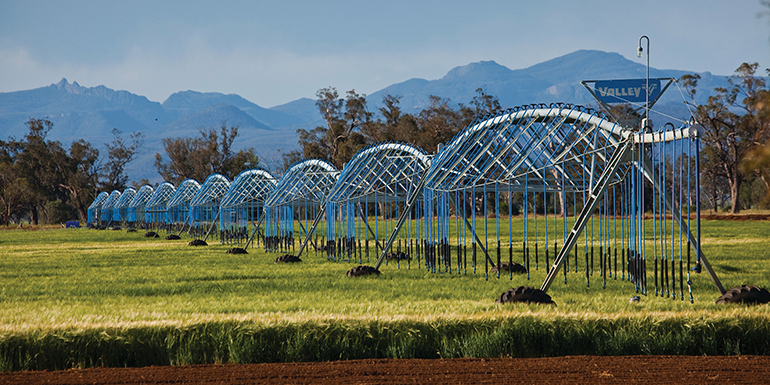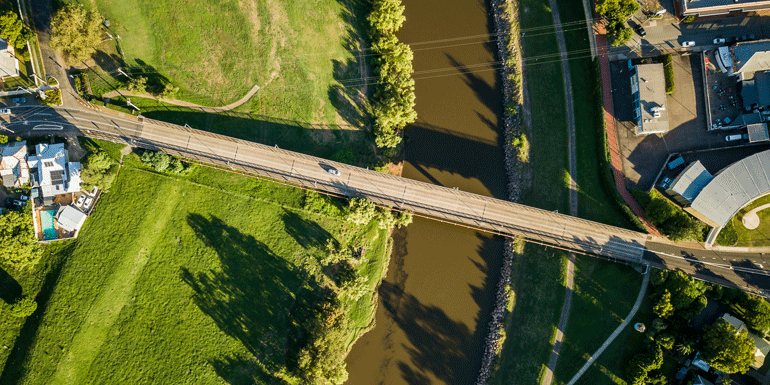Climate change and large business
The climate of NSW is changing, which is increasingly affecting all aspects of life, including the economy and how large business operates. These impacts include changes to our weather, coasts, oceans, our health and wellbeing – and that of our loved ones, and the natural and built environment. The impacts of climate change are experienced locally, and as they depend on the global location of business activities, and supply chains - are becoming increasingly difficult to manage.
Large businesses that operate in sectors such as finance, insurance and consulting are under increasing stakeholder and regulatory pressure to respond to climate change. This involves businesses identifying and managing climate associated risks; including liability and mapping out pathways to reach Net Zero.
But it’s important to recognise that where there are risks, there are also opportunities. Some of these include increasing the ability to attract investors and talent, and identifying innovative, climate solution orientated, business opportunities. Large businesses that move fast – often get an advantage.
How climate change affects large business
Depending on the industry, climate change risk exposure can vary.
Physical risk looks at climate change impacts on a businesses premises and operations; including supply chains. For example, hail damage to a warehouse facility, or the unavailability of a specific product due to drought in an emerging economy, will have a negative business impact.
Transition risk describes the unknown way in which society will continue to respond to climate change. These risks include policy changes, shifts in market preferences and technologies, and stakeholder demands. If not managed, these risks can increase business costs, undermine the viability of existing products and services, affect asset values. Transition risk can also lead to a poor external reputation and a negative workplace culture.
Large businesses are being held accountable for their greenhouse gas emissions. We're already seeing legal cases brought against fossil fuel and utility companies holding them accountable for exacerbating climate change. In 2019 alone, there were 96 filed climate change litigation cases in Australia; the second-highest in the world, after the United States.
Climate change can negatively impact the health, social and emotional wellbeing of employees. For example, bushfire smoke can be harmful to employees with asthma, while children with respiratory may also need to be cared for by employees; impacting productivity.
Adaptation actions large business can take
Business can take immediate steps to adapt to a changing climate.
- Become familiar with the NSW Governments and international policy positions on climate resilience.
- Review the regulatory requirements to assess and disclose financial risk. APRA statements and TCFD recommendations.
- Carry out climate vulnerability risk assessments and identify risk mitigation options.
- Build climate resilience into governance frameworks; including identifying, managing and monitoring climate related business and liability risks in governance processes.
- Identify new market opportunities that are less carbon intensive, or which enable carbon reduction by others. Explore the development of new technologies, or products and services which could capture new markets and funding.
Reducing large business impact - emissions reduction and sustainability
Younger generations are increasingly seeking to work for values based organisations that are taking sustainability and emissions reduction seriously. Businesses can reduce their climate change impact through simple actions that can be adopted today.
- Invest in renewable energy to deliver an immediate impact.
- Increase energy efficiency across all operations.
- Create a net zero plan with specific emissions reduction targets; including supply chain and logistics.
- Have an Environmental Social Governance Policy.
The most important thing is to get started. Starting today can help prevent expensive and necessary changes down the track. Making the transition is not only good for business; it's good for all of us.
Related Information
Adaptation actions
Task force on climate related disclosures
Understanding and managing the financial risks of climate change - APRA
Investor Group on Climate Change
Intergovernmental panel on Climate Change
Cambridge Institute of sustainable leadership
Reducing impact
Business renewables centre Australia
Climate and Business - WWF



